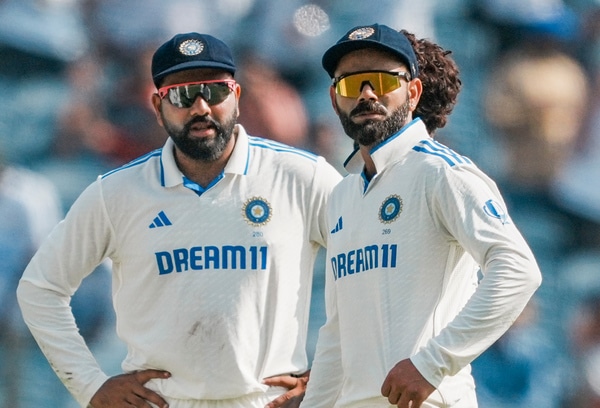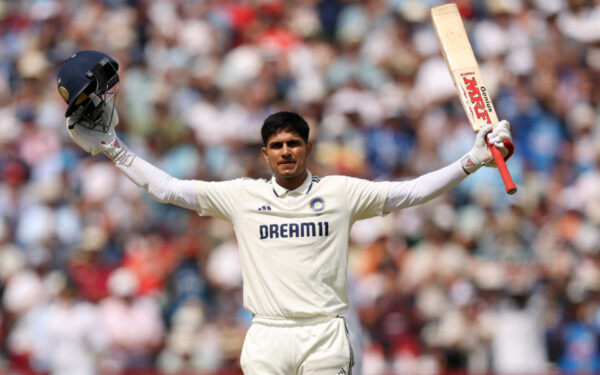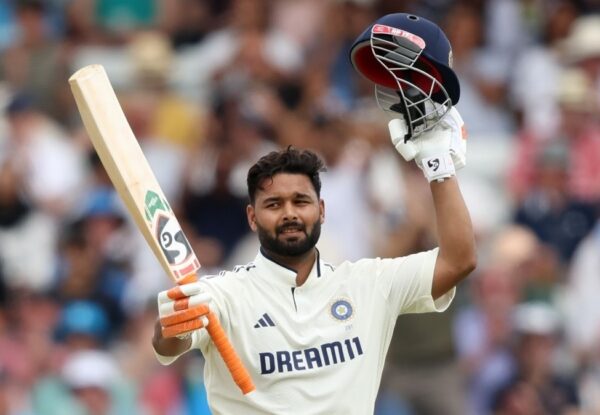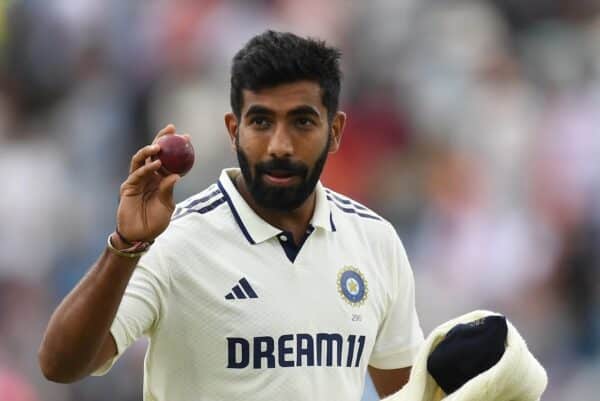The inaugural Anderson-Tendulkar Trophy may have officially concluded in a 2-2 draw but its essence extended far beyond numbers. This was a series defined not just by outcomes but by the courage, skill and sheer audacity displayed over 45 days of high-intensity cricket.
India, led by a youthful core and missing the seasoned presence of Virat Kohli, Rohit Sharma and Ravichandran Ashwin, showed character that belied their inexperience. In their absence, it was 25 years old Shubman Gill who rose to the occasion and scripted one of the most remarkable individual performances in modern Test history.

Meanwhile, a fragile Indian bowling unit, operating mostly without its mainstay Jasprit Bumrah, defied expectations to deliver telling blows at key moments.
Here are some of the key moments of the series along with some records that were made in the inaugural edition of the Anderson-Tendulkar Trophy:
Shubman Gill’s Spectacular Performance:
Shubman Gill’s performance was nothing short of monumental. He accumulated 754 runs across the five Tests, more than any batter has ever scored in an India vs England Test series. That tally also set a new benchmark for runs scored by an Indian captain in a Test series, breaking Sunil Gavaskar’s 46 years old record of 732. Across all captains in Test history, only the legendary Don Bradman has scored more in a single series, with 810.

Shubman Gill also became the first Asian batter to breach the 700-run mark in a Test series played in SENA countries (South Africa, England, New Zealand, Australia), surpassing Virat Kohli’s 692 during the 2014–15 Australia tour. At Edgbaston in the second Test, he crafted a stunning 269 in the first innings, now the highest individual score by an Indian captain in Tests, going past Kohli’s 254. That innings also helped him become the first Asian captain to notch a double century in SENA nations, overtaking Tillakaratne Dilshan’s 193 at Lord’s in 2011.
To cap it all, Shubman Gill’s total of 430 runs in a single match (269 and 161) set a new world record for most runs by a visiting batter in an away Test, toppling Mark Taylor’s 426.
Ben Stokes’ Heroics:

While Shubman Gill owned the batting headlines, Ben Stokes added his own remarkable feat to the Test history. The England captain became the first from his country and only the fifth ever to score a century and take a five-wicket haul in the same match. He joined a rare club featuring Denis Atkinson, Garry Sobers, Mushtaq Mohammad and Imran Khan.
Rishabh Pant’s Brilliance:

India’s vice-captain and wicketkeeper Rishabh Pant made his mark early in the series, scoring centuries in both innings of the first Test at Headingley. In doing so, he became the first Indian stumper to achieve twin hundreds in a single Test match.
Joe Root’s Legacy:
From England’s camp, Joe Root stood tall once again as their batting backbone. Across the series, he compiled 537 runs, including three centuries and a half-century. That pushed his career total to 13,543 runs, lifting him above Rahul Dravid, Jacques Kallis and Ricky Ponting to become the second highest run-scorer in the Test history, only behind Sachin Tendulkar.

Joe Root also became the first player to score 6000 runs in the World Test Championship and now holds the record for most Test centuries at home (10) against a single team, India. His overall Test century count now stands at 39.
Jasprit Bumrah’s SENA Supremacy:
Despite missing a few matches, Jasprit Bumrah achieved a historic milestone of his own. During the opening Test at Headingley, he picked up a five-wicket haul in the first innings, reaching 150 Test wickets in SENA countries, the first Asian bowler to do so. He managed this in just 61 innings, outperforming icons such as Wasim Akram and Anil Kumble.

Other noteworthy moments and records:
This was a series defined by bat-dominated scorecards. Over 7000 runs were scored — only the second instance in the Test history where that mark has been crossed, the first being the 1993 Ashes. India’s contribution stood at 3809 runs, second only to Australia’s 3877 during the 1989 Ashes. Along the way, Indian batters collectively struck 470 boundaries, setting a new record for the most fours and sixes in a single Test series.
Margins also told a story:
The margins of victory added further drama. India’s nerve-wracking 6-run win was their narrowest ever in a Test match, while their emphatic 336-run triumph at Edgbaston became their biggest away victory in terms of runs.
The Anderson-Tendulkar Trophy, in its very first edition, delivered not only gripping cricket but also a cascade of records, unforgettable performances and a showcase of both generational transition and sustained brilliance.
In the end, even a drawn result couldn’t dilute what was a truly iconic series, one that will be remembered for its relentless drama, rising stars and milestones that rewrote the record books.




